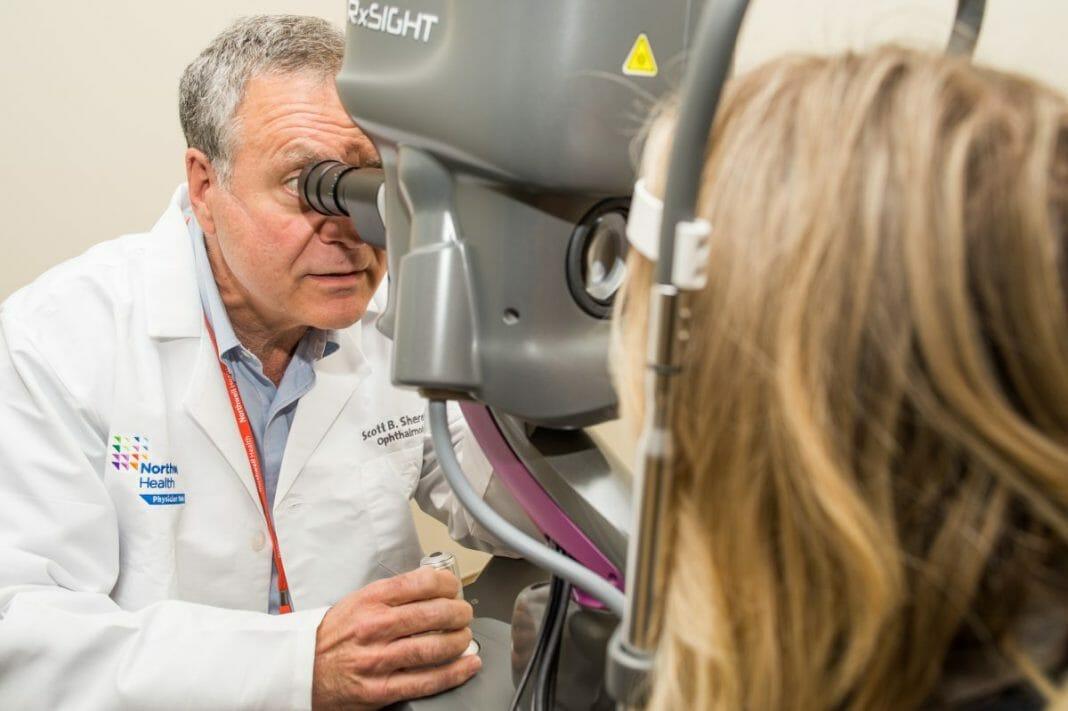The latest development in cataract surgery is now available at several Northwell locations including Peconic Bay Medical Center, Syosset Surgical center and Manhattan Eye, Ear, and Throat Hospital. The cutting-edge Light Adjustable Lens (LAL) enables patients and their doctor to design, trial and customize vision after cataract surgery, more often giving patients their very best possible vision without eyeglasses after surgery.
A cataract is a cloudy area in the lens of the eye that leads to a decrease in vision. Cataracts often develop slowly and can affect one or both eyes. Symptoms may include faded colors, blurry or double vision, halos around light, trouble with bright lights, and trouble seeing at night.
“RxSight’s Light Adjustable Lens allows ophthalmologists to give cataract patients even more precise visual outcomes than ever before,” said Richard Braunstein, MD, senior vice president and executive director of ophthalmology at Northwell Health. “We’re always striving to provide the best care possible for our patients, and with this new technology we are living up to that goal.”
The intraocular lens is made of a unique material that reacts to UV light, which is delivered by the Light Delivery Device, as soon as 17 days after surgery. Patients receive three to five light treatments over a period of several weeks, each lasting about 40-150 seconds, depending upon the amount of adjustment needed. The patient must wear special eyeglasses for UV protection from the time of the cataract surgery to the end of the light treatments to protect the new lens from UV light in the environment.
“Small variations in healing happen in most eyes and with the Light Adjustable Lens, we gain the ability to correct even small amounts of nearsightedness, farsightedness and astigmatism,” said Scott Sheren, MD, director of ophthalmology at Northwell Health Eye Institute at Riverhead. “This lens is amazing because you can adjust its shape and thus its power in the eye and this is done without the use of a laser or conventional surgery.”



